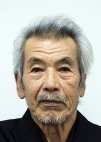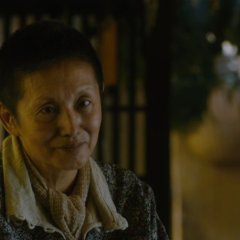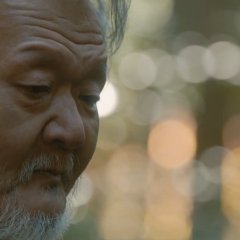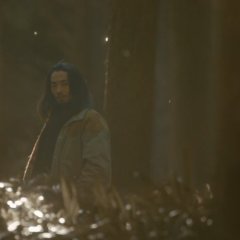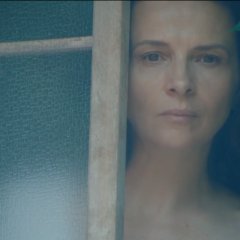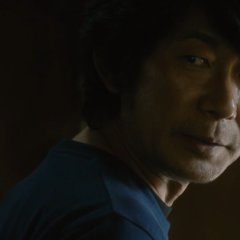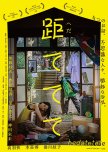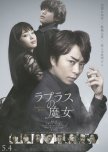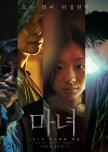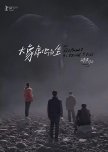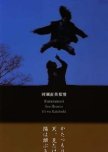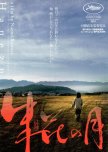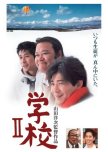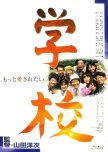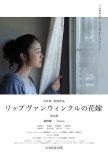Frenchwoman Joan is a world traveller and chronicler. She travels, sees, experiences and writes. She lands in the forest and hills near Nara, Japan and meets Satoshi. Despite the mysterious aura and eccentric personality, the woodsman finds a place in the visitor's heart. (Source: IMDb) ~~ Co-production with France. Edit Translation
- English
- 中文(台灣)
- magyar / magyar nyelv
- dansk
- Native Title: ビジョン
- Also Known As: Voyage à Yoshino
- Screenwriter & Director: Kawase Naomi
- Genres: Life, Drama
Cast & Credits
- Nagase MasatoshiSatoshiMain Role
- Juliette BinocheJeanneMain Role
- Iwata TakanoriRinSupport Role
- Natsuki MariAkiSupport Role
- Moriyama MiraiGakuSupport Role
- Tanaka MinMinamotoSupport Role
Reviews

If there's a director who could rival Hiroshi Ishikawa(Petal Dance, Su-ki-da) in terms of the slow pace in a movie it's Naomi Kawase, and this movie of her is not an exemption. Having said that this movie could be the slowest movie you will ever watch so it's definitely not for everyone. You should also be in the right mood when you watch this as it is not that easy to digest type of movie. There are scenes that are full of ambiguity, and the chronological order became convoluted at the middle part, to be honest the way the scenes overlap from past to present too much is what I like the least about this film.
Even if you don't like the narrative there's no way you won't like the relaxing ASMR-esque vibe thru the visuals and the sound in this movie. There are only few directors that you would know whose film it is just by looking at its visuals and Kawase is part of that group. The aerial camera shot of the forest, sunlight dancing through the leaves, huge trees swayed by the wind like bamboo, tear-shaped falling raindrops, characters blend in a nature background. Kawase's documentary like camera work is also quite evident. It's no secret that Naomi Kawase movies are like the Makoto Shinkai of live action movies. It has minimalist music or almost no music at all; all you can here are the sounds of the forest, raindrops, chopping of wood etc. The movie did brilliant in capturing those sounds. Have you ever wanted to watch a movie and feel relax at the same time then this one is for you.
I can't say anything about the acting but brilliant. It is ten out of ten on that aspect. Nagase did a great job of portraying a strong silent type character who is longing for love. Binoche is compelling, plays this woman of words effectively, she always say fascinating facts in every conversation. Binoche is not your typical foreigner actor in a Japanese movie, just look at her imdb page and see her filmography. Nagase and Binoche have this unspoken chemistry together, they had converse in English a bit but there's something magical when they mix Japanese & French in their conversation, two of the best sounding language in my opinion. The best performance though comes from Mari Natsuki who played this self proclaimed 1000 year old blind woman Aki. Her peculiar characteristics played by Natsuki convincingly. She played the principal in Chugakusei Nikki, talking about a total 360 compared to that role.
Compared to other Kawase films, It is not as good as Sweet Bean, it even falls short compared to Still the Water, but definitely better than Radiance.
Check my Blog for other reviews & other JDramas stuffs. (。◕‿‿◕。)
https://thatjapanesedramaguy.blogspot.com/
Was this review helpful to you?

This review may contain spoilers
This film was a breed of mysticism and magical realism that you so rarely see anymore. One that demands the viewer to take time and weigh the details in their mind (so much so, that i had to draft this review in a word document, rather than straight into the MDL textbox). One that provides ample fruit for analysis upon reconsumption. One that requires absolute mastery of cinematography and characters.“Are we really in the present? I don’t know. We are losing the certainty of being in the present. It could be the past. It could be the future.”
Put in the most simplest of terms, this was a story of reincarnation and rebirth. In it, we see two converging timelines of parallel souls anchored to the forest in which the story takes place. At first, it’s subtle. Mere flickers of visions across Joan’s consciousness. But towards the end, we see it leak into her reality more and more, until she comes to a revelation. The “vision” herb/fungus for which she felt a desperate and indescribable need to find (“I don’t know. I don’t know. I need it.”) wasn’t for her happiness. Nor even mankind’s.
But rather to heal and cleanse the forest of the tragedy that simultaneously happened long in the past and in the present (“I’m looking at two suns existing simultaneously. One in the water, the other on top of the hill.”). The tragedy that created unrest in the forest. The tragedy that seeped agony and pain even into the next iteration of their souls. Afterall, “love never stops.” Even when it looks still. It’s also the tragedy that the old man in the forest comments about it being a sad thought that when he passed, no one would be left to remember those graves on top of the hill. The tragedy of the young father-to-be killed in a hunting accident. And that of the young mother who (presumably) died shortly after giving birth to their son.
The son that the old crone, an old entity who sees not through her eyes but through her mystical connection to the forest that her life is so intrinsically tied to (honestly, she reminds of Mother Willow from the Pocahontas cartoon), carried through the tunnel into the near past. The son who is adopted by the old man telling the story in the forest, and who is given the name Rin. The son who found his way into a familial dynamic with the reincarnated souls of his parents.
And when the 3 should-have-been family members finally reunited and found themselves under the old and cleansing Juniper tree that they have all been drawn to throughout the story, that’s when “vision” is born. Or, the final merging of these 2 parallel timelines. And we see the spirit of the young father-to-be, smiling at what is finally possible, and walking off into the woods – his soul finally able to move on.
And what better method of rebirth, than that of fire – which has been intrinsically related to rebirth in both worldwide mythologies and in nature. And fueled by the wind that is Aki, who guided all the key players into making it possible.
And I think what's great about this film, is that this is all just one interpretation. But they all have the potential to deeply move a viewer. For instance, a fellow reviewer who analyzes the story through a lens that does not include reincarnation.
Was this review helpful to you?







